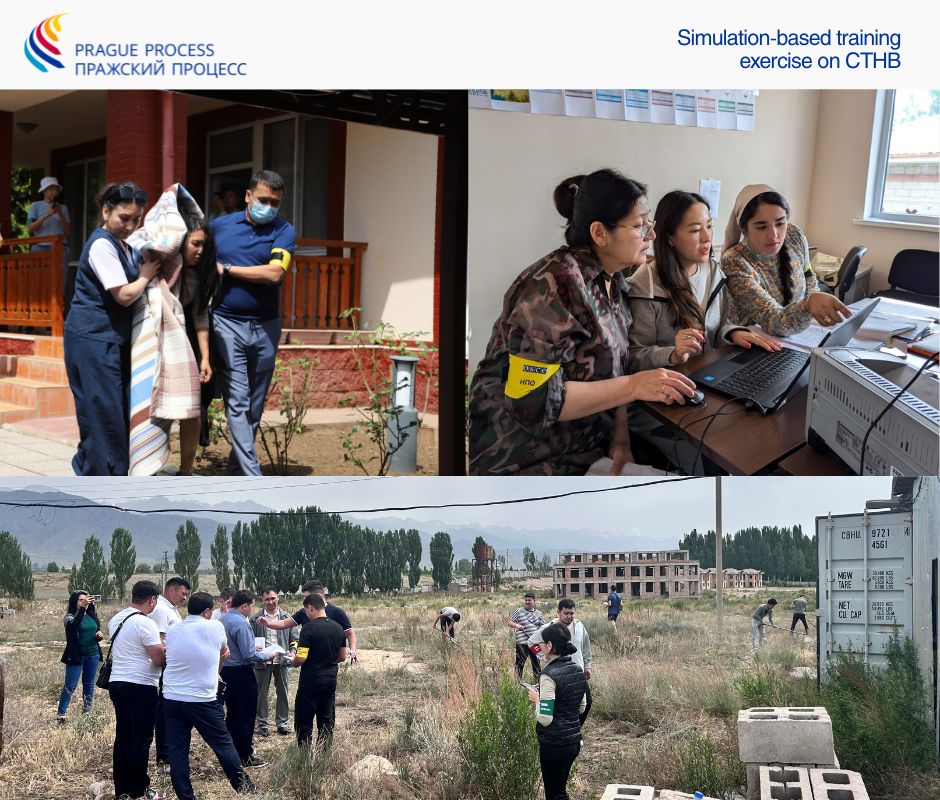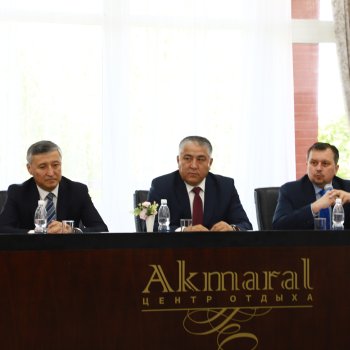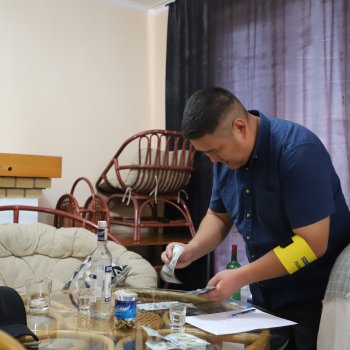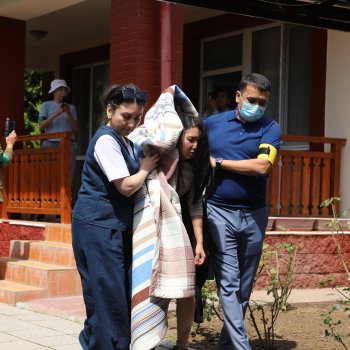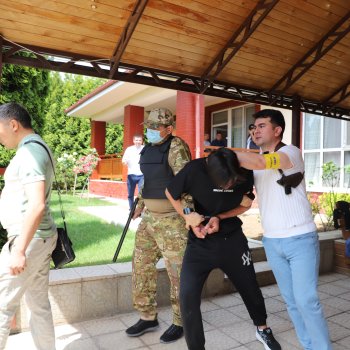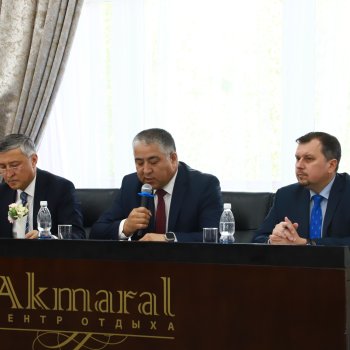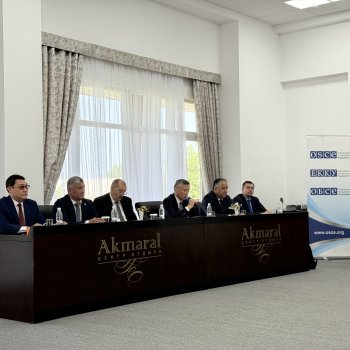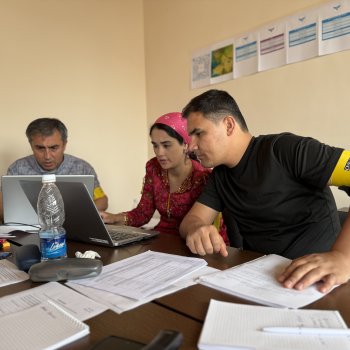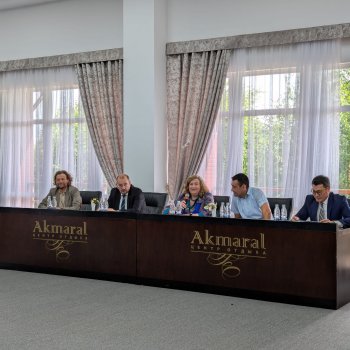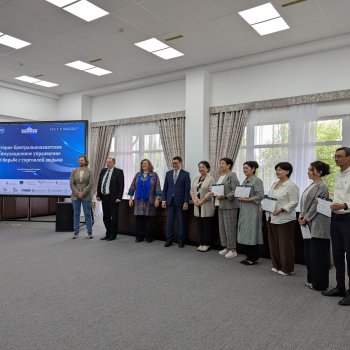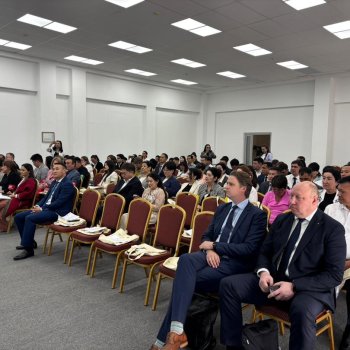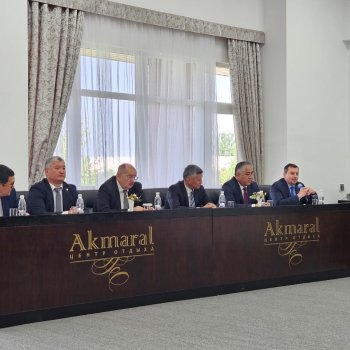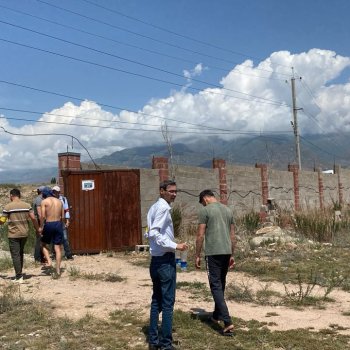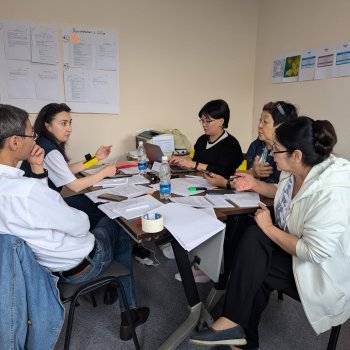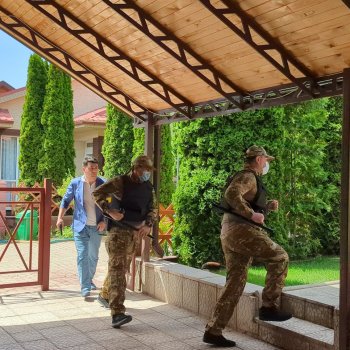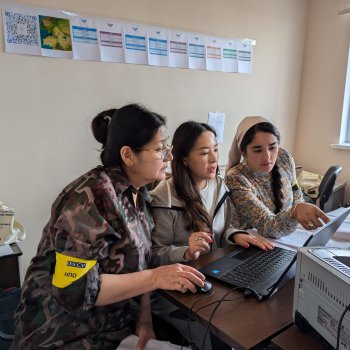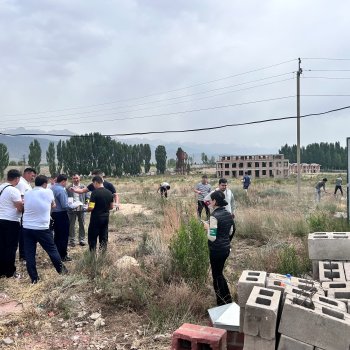Over 130 practitioners from Central Asia and Türkiye convened on 9–13 June 2025 at Lake Issyk-Kul, Kyrgyzstan, for a five-day simulation-based regional training exercise focused on combating trafficking in human beings. Organised by the OSCE in co-operation with Kyrgyz authorities and supported by the Prague Process, the training built on the success of a similar regional simulation held in 2023 and marked a significant step forward in fostering operational collaboration and victim-centred responses to trafficking threats.
The event brought together law enforcement officials, prosecutors, asylum and labour authorities, social workers, and civil society representatives from Kazakhstan, Kyrgyzstan, Tajikistan, Türkiye, Turkmenistan, and Uzbekistan. Designed around realistic scenarios, the simulation focused on cases of sexual and labour exploitation, as well as forced criminality. Participants worked in mixed national teams, carrying out multi-agency investigations and applying standard operating procedures to identify victims, ensure their protection, and coordinate joint action. Cases reflected regional realities and involved vulnerable individuals such as children, persons with disabilities, and undocumented migrants.
Throughout the week, the simulation highlighted both operational best practices and structural shortcomings. Participants noted the effectiveness of multidisciplinary mobile teams, joint investigation frameworks, and cross-border information exchange mechanisms. At the same time, challenges related to fragmented inter-agency coordination, uneven legal frameworks, and the tension between victim protection and evidentiary needs were widely acknowledged. Delegations underlined the need to institutionalise joint training, operationalise secure data-sharing platforms, and further regional cooperation.
The exercise also stimulated forward-looking discussions, with several states proposing follow-up actions such as developing AI-supported risk monitoring tools, harmonised interview protocols, and preventative outreach measures targeting border areas. The relevance of simulation-based capacity building was broadly affirmed, with participants expressing strong interest in replicating the format nationally.
The Prague Process facilitates regional cooperation to counter human trafficking, prioritising human rights, operational preparedness, and cross-border cooperation. Through sustained engagement and strategic support, the Process continues to serve as a catalyst for regional innovation and alignment in one of the most pressing migration challenges of our time.

